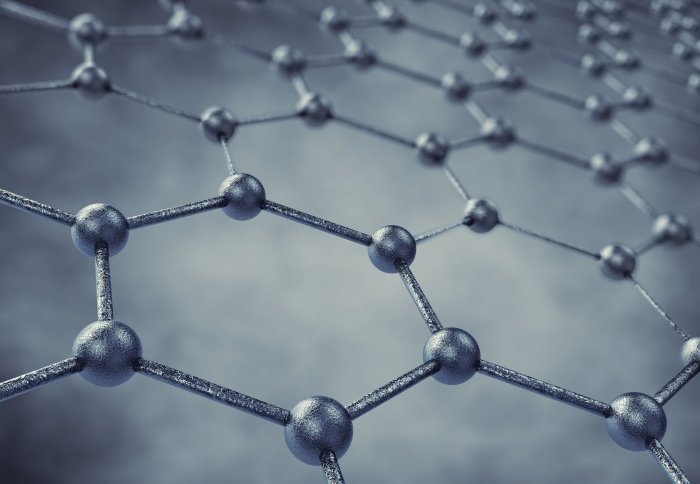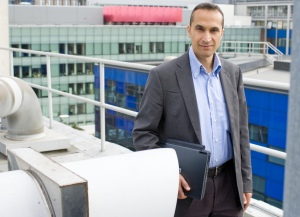Imperial helping UK grow its hi-tech manufacturing base
by Colin Smith

Helping the UK to develop more hi-tech industries will be the focus of research at a centre, officially launched at Imperial College London today.
The Manufacturing Futures Lab (MFL) at the College is bringing together experts from around Imperial who are working on developing technologies and processes that will make manufacturing in the UK more efficient, cost effective and ultimately more profitable. Along with industry and the Government, researchers at the Centre are also aiming to turn research ideas into new businesses.
Academics at the MFL are focussing on a range of projects including ways of making stronger, more durable parts for cars and aircraft using less material and energy.

Professor Shah and his team at the MFL are working towards developing the next generation of hi-tech industries for the UK
Professor Jianguo Lin, from the Department of Mechanical Engineering, and his team combines two processes in one, where aluminium alloy is heated and stamped into a shape to make a part. Heating the alloy makes it more malleable, which means that it can be formed into shapes that are much stronger. The MFL is supporting Professor Lin in his efforts to commercialise the technology, which will be licensed to manufacturers.
Other research programmes underway at the MFL include creating ways of mass producing microscopic ‘factories’ made from bacteria and DNA to produce new drugs and fuels; exploring the structure of the wonder material Graphene to harness its unique qualities; and developing new ways to manufacture electronics as well as creating more sustainable types of feedstock.
“Manufacturing currently only accounts for nine per cent of the UK economy, which is dismal by world standards. The average size of a manufacturing business is around 14 employees, which demonstrates that we have become better at craft industries such as making bicycles than developing the hi tech industries that make products like iPhones,” said Professor Nilay Shah, Director of the Manufacturing Futures Lab from the Department of Chemical Engineering.
“The challenge now lies in the UK’s ability to industrialise on a large scale. It’s true that industries can’t go back to the old days of making cost intensive, low value machinery such as ships. What we need to be developing are innovative processes to improve industries or creating the next Samsung or Apple corporations – hi-tech industries that will generate long-term wealth and employment for the country.
“We believe that the Manufacturing Futures Lab will provide an important focus, helping to nurture and grow the next generation of businesses to help the country make a transition to a rebalanced, stronger economy.”
For the past 40 years the UK has been focussing on growing business such as finance and insurance. An over reliance on these service industries has made the UK economy vulnerable to external shocks such as the 2007-2008 financial crisis.
Realising this weakness, the UK government is working towards rebalancing the economy, with a greater emphasis on developing hi-tech industries that can compete with economies in the developed world.
Imperial is working with the Government and industry and harnessing its considerable research expertise in advanced manufacturing to help meet this challenge.
“The UK cannot compete with developing economies that can produce products at low cost because of lower wages and living standards. The MFL aims to promote manufacturing technologies where the UK has a clear scientific advantage. Ultimately, this will see the production of high-value products that are developed by a skilled, well paid workforce. Researchers at the MFL are already working on a range of projects that should lead to jobs and prosperity for the UK,” added Professor Jeff Magee, Dean of the Faculty of Engineering at Imperial College London.
Article supporters
Article text (excluding photos or graphics) © Imperial College London.
Photos and graphics subject to third party copyright used with permission or © Imperial College London.
Reporter
Colin Smith
Communications and Public Affairs